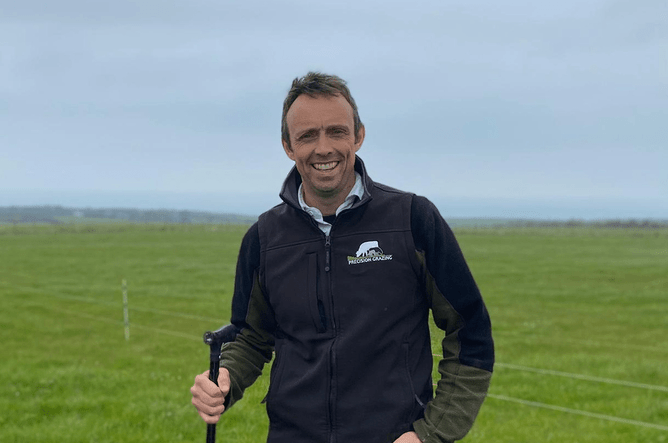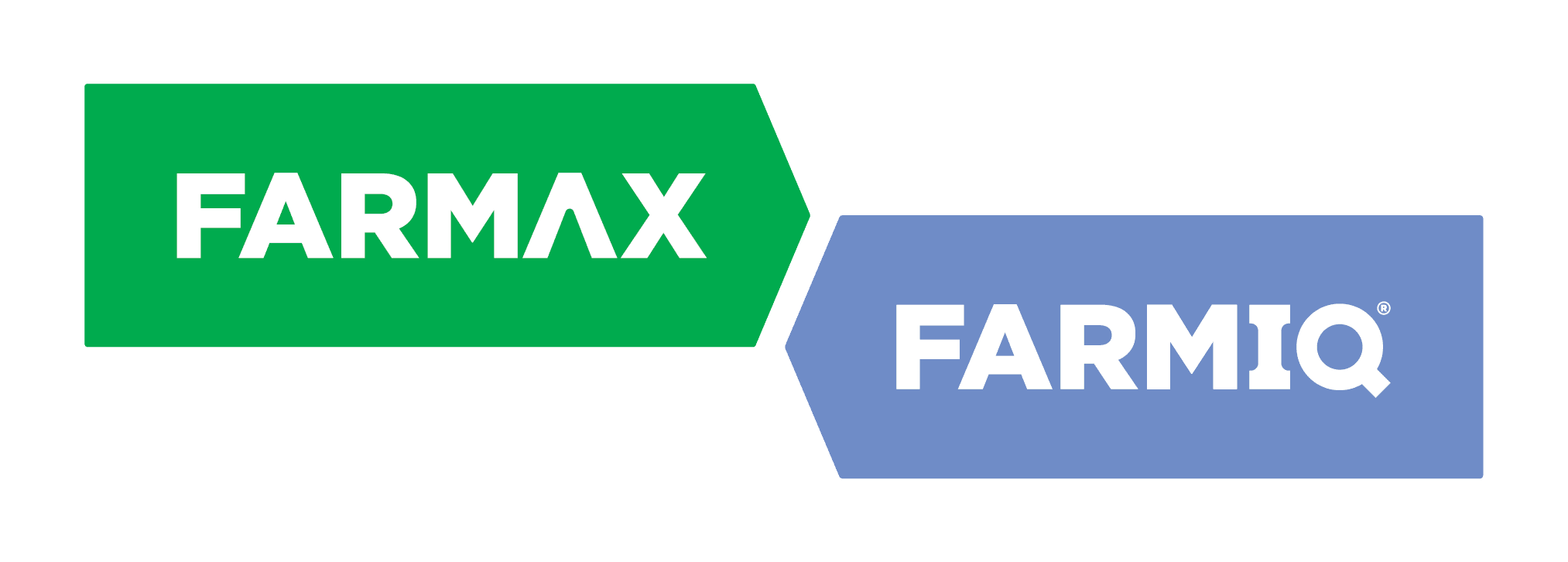Rhys Williams, his wife and their three children live on Rhys’ family farm on the Llyn Peninsula in Wales – a very rural area and one of the most Welsh-fluent parts of the country. Weather conditions vary greatly throughout the year but generally it’s a kind climate for growing grass. The land is a scenic mixture of coastal areas bordered by verdant mountains.
The farm is a 60ha dry stock business with 1,000 hoggets and 150 contract-reared R2 Kiwicross dairy heifers. Rhys is also a shareholder in a joint farming venture located in Abergele: 300ha with 2,200 New Zealand Romney Wairere breeding ewes, plus 600 replacements, and they plan to introduce contract reared dairy heifers this year.
Rhys spent 15 years teaching agriculture at a tertiary college but wanted a more direct involvement with the industry and to spend more time on the farm with his family, so changed direction to more hands-on farming and consultancy work.
The grass is greener
Some neighbours who had transitioned from beef and sheep to a spring calving dairy enterprise showed Rhys the potential of growing more grass, and he became interested in grazing management. He introduced rotational grazing principles to the family farm almost ten years ago and this had a hugely positive impact on the financial performance of the business.
A few years later Rhys met James Daniel from Precision Grazing who offered Rhys a role as a farm business consultant, and he’s been supporting farmers with systems that enhance soil health and improve pasture utilization alongside profitability for the last four years.
Precision Grazing is a small team of three – Rhys, James and Sarah. Rhys and Sarah look after 8 – 10 discussion groups, totalling about 250 farmers in different stages of their rural training.
James Daniels describes Precision Grazing as “farm business consultants working with livestock farmers to optimise their use of pasture and forage enabling them to produce nutritious meat and milk whilst enhancing the environment and making a healthy profit” and FARMAX is an important aspect of that optimisation.
FARMAX was key to establishing Rhys’ joint venture and he uses FARMAX on his farms, just like he does with clients.
The main benefits Rhys and his clients get from FARMAX are improved farm efficiency, better use of the farm’s natural resources, and being able to design and implement a farm business that is resilient, sustainable and not dependent on support payments.
“Initially we model a business to see what it's doing at present. That helps you then identify the current grass production and the performance of the farm and identify periods of feed surpluses and deficits.
“Then as consultants we recommend changes to the farming system to align closer with the grass growth curve because that's what we specialise in with Precision Grazing – to transform businesses into more pastoral-based systems, work with nature and lower the inputs,” Rhys explains.
“FARMAX then monitors the farm performance as we input pasture and livestock performance data into it – we generally do that on a monthly basis.”
Another benefit of FARMAX is the ability to respond to challenges in a timely fashion.
“One of the weaknesses of some aspects of the farming industry in Wales is it's not data driven enough and there's not enough measurements and not enough monitoring. One of the main benefits of FARMAX I see is that it's data driven decision making,” asserts Rhys.
FARMAX is a place to store data as well as a simple medium for that data to be shared with everyone in the business.
"One of the weaknesses of some aspects of the farming industry in Wales is it's not data driven enough and there's not enough measurements
and not enough monitoring. One of the main benefits of FARMAX I see is that it's data driven decision making."
- Rhys Williams, Precision Grazing
Social sustainability
Rhys is eager for the sustainable elements of farming to not just be limited to environmental and financial; he knows that social sustainability is equally important to attract, retain and nurture farm staff.
“That's something that's close to my heart – also from the aspect of that work life balance. We need to make it an attractive industry because I sense that a lot of farmers feel they need to be busy and they allow the farm to control their life rather than vice versa,” says Rhys.
He asserts that FARMAX is a tool that can help people spend less time on the farm and more time doing other things that would enhance their wellbeing.
“How does FARMAX directly impact that? In my mind it's planning systems, clear and simple systems. You can plan ahead; you can see the big picture.
“With a lot of clients, it's more ad hoc, more firefighting and when you're firefighting you've got to be there all the time and you get into a pattern of being there. FARMAX helps you plan your farming year. Having a data driven plan that you can monitor and adjust gives you confidence and faith in your system which helps farmers to relax and have peace of mind.”
Rhys is seeing signs of a change in mindset, with some dairy farms adopting systems such as milking 10 times in 7 days as opposed to the usual twice-a-day milking, which reduces pressure on staff and gives them more time away from work – especially in the evenings and weekends.
This kind of practice is better for staff wellbeing, and as Rhys says, “happy people makes happy businesses.”
Future challenges
Rhys is passionate about grass and encouraging others to utilise what they have rather than relying on bought-feed which has dominated the United Kingdom’s farming industry for the past few decades.
“It was an economical, profitable way of doing it without having to manage pasture and without having plan and budget feed – you could just go out and buy the feed or spread the fertiliser when needed” says Rhys.
“A large proportion of the industry in the UK has lost the pastoral skills and lost the grassland management skills. Subsidies have come in to offset losses and then allowed some farmers to continue to farm high input, uneconomical systems.”
Rhys believes there is a lot more pressure on farmers these days, especially with the costs of inputs increasing at a higher rate than the value of the product, and the challenges don’t stop there.
The removal of support payments, more environmental regulations and negative public perception are other issues affecting the agriculture industry.
“There's more and more of the bad PR now and blaming of the agriculture industry... for example, the public are led to believe that if you want to save the environment, you should eat less meat.”
Animal welfare and environmental degradation are also worries for consumers, and farmers have had to adapt to their customer preferences, which is part of the reason why there is increasing attention being given to regenerative agriculture.
Another challenge Rhys sees is the ageing industry, with the average age of UK farmers close to 60 years old.
“Many of the older generation farmers are comfortable and see change as a threat to their way of life as they approach retirement. The resistance to change demotivates the younger generation and stifles progress. Therefore, succession planning as early as possible is vitally important for the growth and future success of the businesses.
“In fairness, Welsh government do acknowledge all these challenges and fund advice, training and knowledge transfer through a programme called Farming Connect. I work with a lot of clients through Farming Connect and it is very heartening to see advice and guidance implemented and having a positive impact. Wales has an excellent climate to grow grass and I can see a very bright future for pastoral-based systems.”

